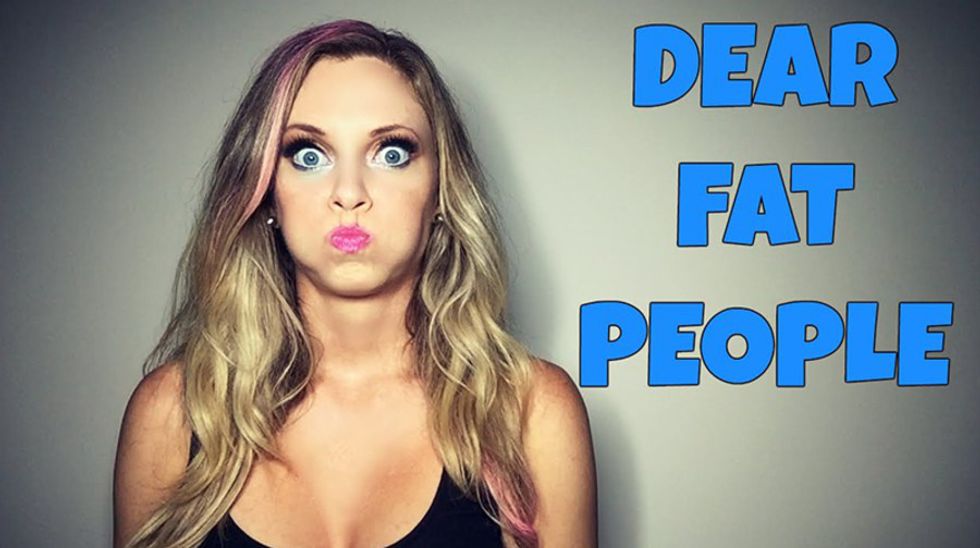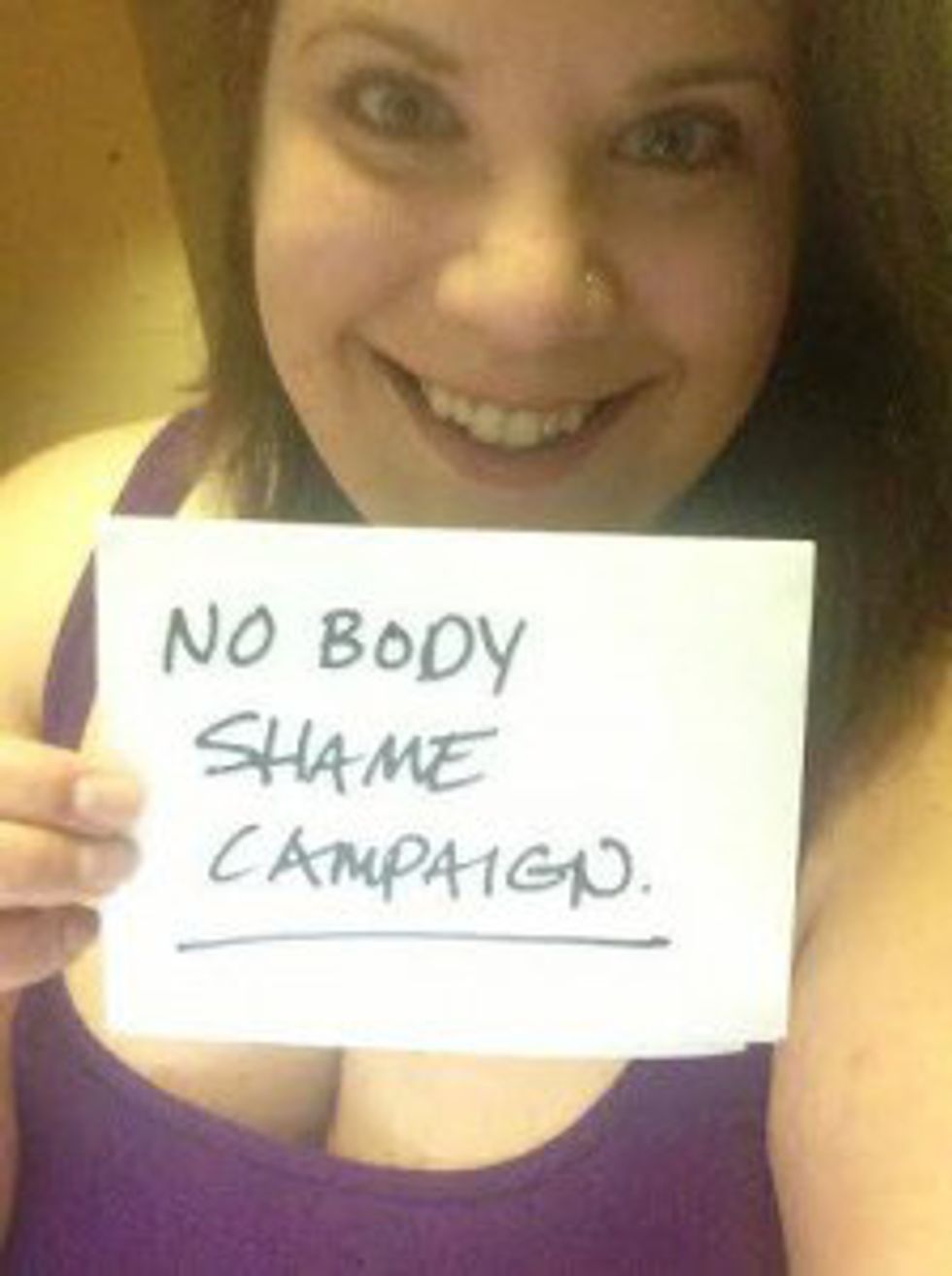Technology today has given people the power to say how they feel and make it heard. Though this is a great thing when it's helping people find their voice, others may not use this power for the better.
On YouTube, Nicole Arbour, a Canadian comedian, recording artist, actor, writer, choreographer, and producer, posted a video and titled it “Dear Fat People” with the subtitle “what I want to say to fat people.” Its purpose? Well, she begins the video by saying that fat shaming is not real. However, that seems to be the only point to this video.
In the days following, Facebook feeds filled up and the video was widely shared. When I first watched this video, I’m pretty sure I didn’t even finish it, because I found it annoying, mean-spirited, and, in the end, not worth my time. But when I saw it pop up on my feed again, I decided to see it through the end. And let me tell you, I was NOT amused. In fact, I was mad. Not just mad, I was furious.
Yes, there are things that need to be said, but there are ways to say it, and Arbour's plan of attack was a more "comical" approach. Maybe I don't have a sense of humor, but I found nothing funny in her so-called jokes. Saying things like "obesity is a disease, yeah, but so is being a shopaholic, but I don't get a fucking parking pass" made me 1. question where in the world those parking spots are and 2. consider the stigma of obesity as a real problem.
Many rebuttals have been created since Nicole's video was uploaded. One of the rebuttals was from the "fat kid" who she talks about having an experience on a plane with, Tony Posnanski. He writes, "you made fun of divorce, and you made fun of “fat” people. You seem to have the secret to “click” success… all in the name of comedy." And that she has, but to some people, bad publicity is still publicity. She gains it by making fun of such serious topics. My question for Nicole is this: why does comedy have to come at the expense of others? Do you know what their lives are like? How can you be so judgmental when you have no idea who these people actually are?
Another rebuttal came from Whitney Way Thore who, in fact, has her own TLC show called My Big Fat Fabulous Life. She spoke about how you don't know a person from just looking at them. You don't know if they have a health issue preventing them from losing weight, and you don't know if they're in the process of losing weight either. After showing a clip of Arbour saying "if we offend you so much that you lose weight, I'm okay with that," Thore then replied with the fact that "fat shaming actually has the opposite effect of what is intended, it causes people to gain more weight." And the truth is spoken! This goes for all forms of shaming. When people are publicly humiliated, it is not an encouragement, it is like telling them that they will never be right or accepted. It's telling them that no matter what they do, they won't be able to reach their goal.
Due to all the rebuttals, Nicole decided to post a statement explaining what she thinks about the response she has gotten back from the video. She claims people were only making them to use her name to become famous, and that made my eyes roll even more. I found this part of the comedian funny, considering this was the first time I had heard of her. But I guess bad publicity really is still publicity, right, Nicole?
In the span of the weekend, Arbour's YouTube account was deactivated, re-activated without videos, and now is back with all her content, including "Dear Fat People." There are now petitions online for Nicole Arbour to apologize like this from forcechange.com, Tell YouTube Fat Shamer to Apologize. Within the rebuttals on YouTube and throughout the internet, it seemed widely agreed that the video, along with it's owner, should be taken down.



















